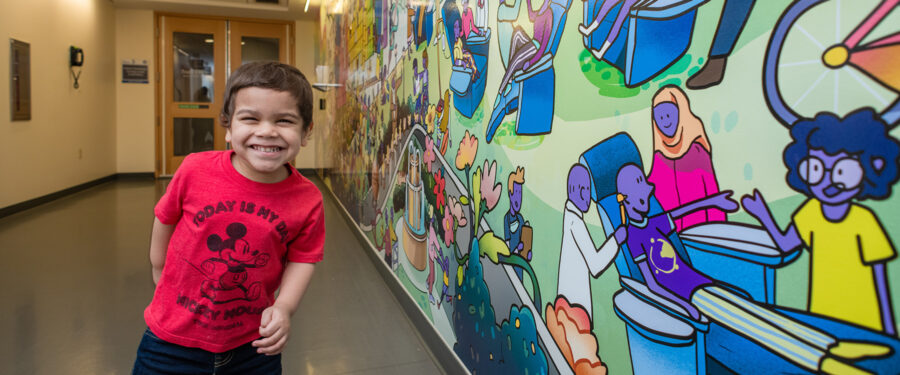
Donor Recognition
Every gift is making a difference.
Generous donors are helping us expand treatment options and prevention approaches for patients who need them, changing lives everywhere.
-

-
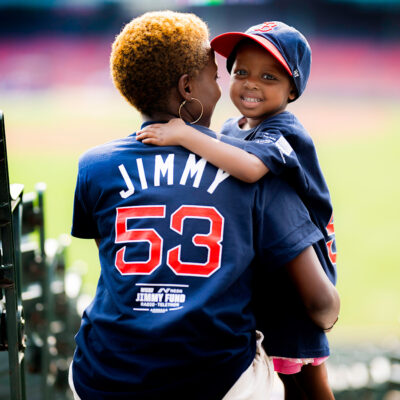
Another home run year for the Jimmy Fund Radio-Telethon.
-
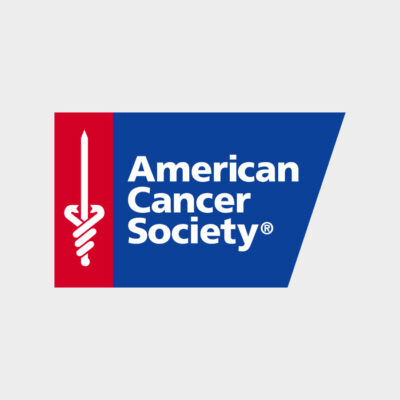
American Cancer Society enables pathbreaking new inquiries.
-
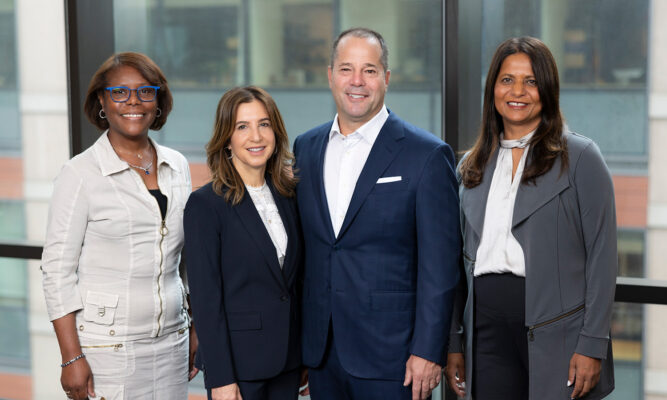
Krafts champion early detection and prevention for at-risk communities.
-

HomeGoods supports families facing cancer.
-
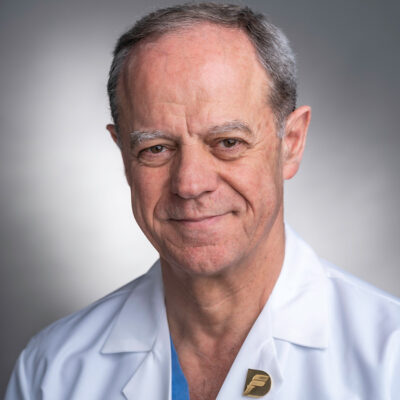
Researchers support research to advance early detection.
-

First-ever fellowship in metastatic prostate cancer and AI research.
-
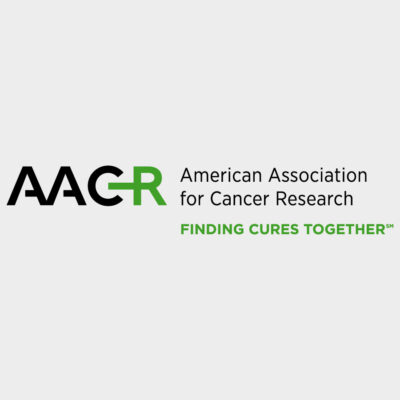
AACR targets breast and uterine cancers.
-

Campaign leadership spurs innovation and progress at Dana-Farber.
-
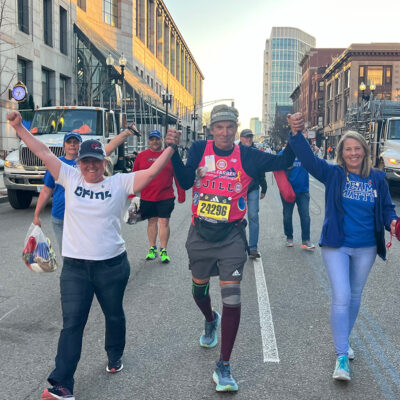
Sheer joy and “finding the fun”: DFMC runners defy cancer with $8.8 million raised.
-
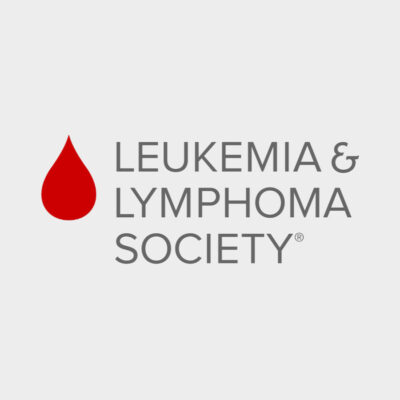
The Leukemia & Lymphoma Society grants target blood cancers.
-

Susan G. Komen funds research into new breast cancer treatments.
-
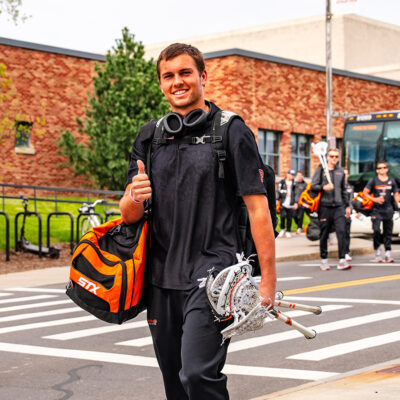
Palumbo family moves needle for patients with rare pediatric cancers.
-
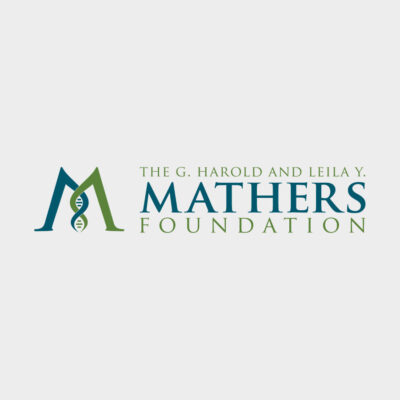
High-risk, high-reward research is The Mathers Foundation’s priority.
-
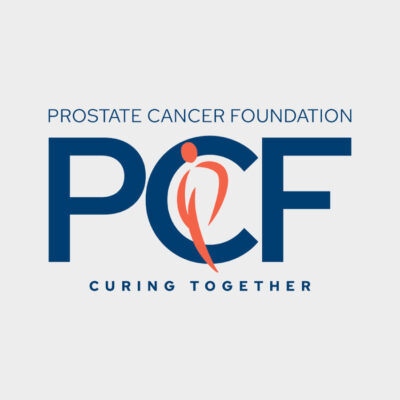
Grants catalyze new advances in prostate cancer.
-
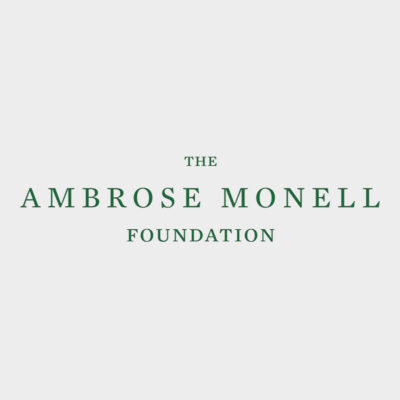
The Ambrose Monell Foundation fuels critical immunotherapy priorities.
-

Stop & Shop establishes Therapeutic Food Pantry.
-
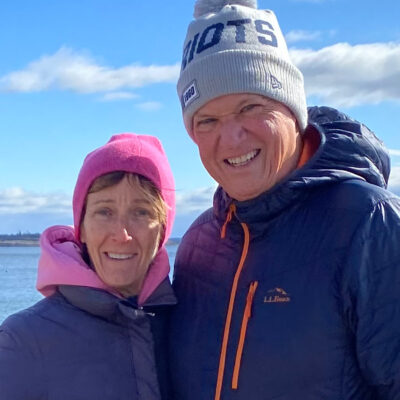
Visionary donors aim to make early detection more comprehensive and accessible.
-

Paving the way to cancer prevention.
-

Damon Runyon invests in promising early career scientists.
-

New grants advance key research across multiple disease areas.
-
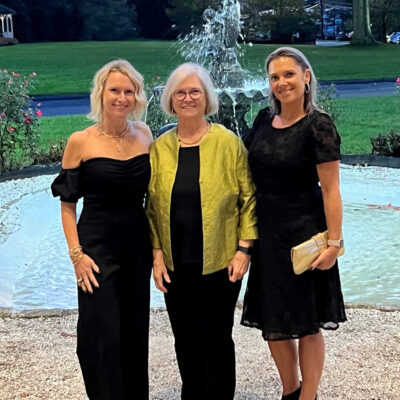
Schaubert Family endows visionary fellowship for lung cancer research.
-
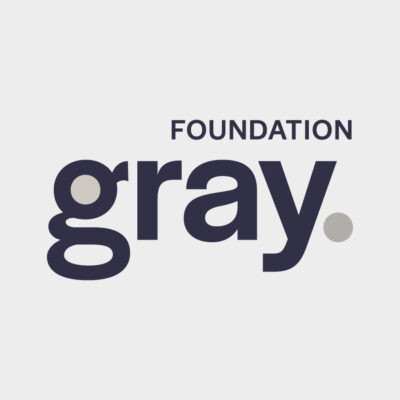
The Gray Foundation empowers team science against BRCA-mutated cancers.
-
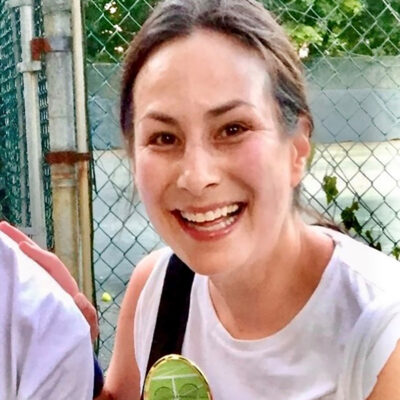
Exceptional care inspires planned gift to gynecologic oncology.

One in a billion: Pan-Mass Challenge surpasses $1 billion fundraising milestone.
For more than four and a half decades, the Pan-Mass Challenge (PMC), a bike-a-thon across Massachusetts and the world’s most successful single athletic fundraising event, has been an integral partner in Dana-Farber’s life-changing work. Even by the PMC’s lofty standards, 2024 was a banner year, as the organization generated a record gift of $75 million and surpassed an extraordinary $1.047 billion in lifetime fundraising since its founding in 1980.
This historic effort was accelerated by the 45th PMC ride on August 3–4, when more than 6,800 riders from 45 states and territories and 10 countries pedaled 16 one- and two-day routes ranging from 25 to 211 miles across Massachusetts. They were supported by over 3,500 volunteers, more than 200 corporate sponsors, and 350,000 individual donations. More than 1,100 riders and volunteers were cancer patients and survivors, considered Living Proof of the PMC’s mission and impact. PMC fundraising was also propelled by PMC Winter Cycle, an annual spin event at Fenway Park in Boston; PMC Unpaved, a gravel ride in the Berkshires in Western Massachusetts; and PMC Kids Rides, where children raise funds through mini bike-a-thons in their communities.
The PMC donates 100% of every rider-raised dollar to Dana-Farber. As the Institute’s largest single donor, accounting for 66% of the Jimmy Fund’s annual revenue, the PMC remains the driving force for progress at the Institute that ripples around the globe. And the advances at Dana-Farber enabled by the PMC since its inception have transformed cancer medicine.
For example, immunotherapy, the gold standard for treating many cancers today, arose from innovative basic research discoveries made at the Institute that relied on PMC support. Since then, Dana-Farber researchers unleashed these breakthrough treatments against malignancies like melanoma, for which the Institute’s team led the first trials of immunotherapies and cancer vaccines.
PMC funding also fueled the growth of Dana-Farber’s clinical trials program into one of the nation’s largest, allowing the Institute to play a substantial role in advancing more than half of all cancer therapies approved by the FDA in the last five years. In multiple myeloma, many of the 19 therapies approved in the past two decades were advanced at the Institute with PMC support, with patients now living three to five times longer than could be previously expected.
Additionally, funding from the PMC has helped the Institute more than double in size since 2000, from approximately 1.22 million square feet then to more than 2.83 million square feet in 2024. This new space includes three world-class patient care facilities built in the past five years to bring cancer care into communities closer to where patients live; and dynamic research labs like the Longwood Center, the Institute’s state-of-the art hub of collaborative, leading-edge cancer science.
Along with its physical footprint, Dana-Farber expanded care for historically marginalized populations as the Cancer Care Equity Program doubled in size, enabling the Institute to increase its team of community-facing patient navigators, build relationships with neighborhood clinics, and expand research into the causes of and interventions for health disparities.
In parallel, PMC resources equipped Dana-Farber to recruit and retain renowned physicians, scientists, and nurses from around the globe, with more than 125 physicians named to Boston magazine’s most recent “Top Doctors” list, 34 investigators on the “Highly Cited Researchers” list by the Institute for Scientific Information at Clarivate, and the fifth consecutive Magnet® designation for excellence in nursing and patient care.
Bolder research, better care, optimal facilities, and the best people—these things and more are what $1 billion from the PMC has made possible at Dana-Farber. This tremendous progress helped the number of cancer survivors in the U.S. grow from less than 5 million in 1980 to over 19 million in 2024, and the five-year survival rate increase from 50% to 68%.
For Benjamin Ebert, MD, PhD, Dana-Farber president and CEO, the George P. Canellos, MD, and Jean S. Canellos Professor of Medicine, and 6-year PMC rider, the PMC is much more than a bike ride—it is a lifeline for the Institute’s mission to defy cancer. “The PMC is an experience like none other,” Ebert said. “I am honored to ride each summer with this committed community, which inspires us all at Dana-Farber and empowers everything we do to improve patients’ lives.”
In celebrating a year that was truly “One In a Billion,” Billy Starr—PMC founder and executive director, 45-year PMC rider, and a Dana-Farber Trustee—knows this dedicated community is ready for more. “I am immensely grateful to everyone who has contributed to this $1 billion fundraising achievement,” Starr said. “Together, we’re setting up the road to the next billion and even greater progress.”
For more stories about the impact of philanthropy at Dana-Farber, please visit DanaFarberImpact.org.

Another home run year for the Jimmy Fund Radio-Telethon.
The WEEI/NESN Jimmy Fund Radio-Telethon presented by Arbella Insurance helped strike out cancer for the 22nd year at Fenway Park in August, with the help of thousands of generous supporters from across the country. The two-day event, which features inspiring stories from patients and doctors at Dana-Farber Cancer Institute, community leaders, and other special guests, raised nearly $4 million for adult and pediatric cancer care and research at Dana-Farber.
Broadcast live from Fenway Park Aug. 13 and 14 from 6 a.m. through midnight, the fundraiser featured Dana-Farber pediatric and adult patients who shared their stories on-air and took part in special on-field ceremonies. Threaded throughout the event were moving tributes to two Boston Red Sox and Jimmy Fund heroes who passed away over the past year: Chairman of the Jimmy Fund and Institute Trustee Larry Lucchino, and the first-ever Jimmy Fund Co-Captain Tim Wakefield.
Kicking off the fundraising each morning was a special matching challenge from Rob and Karen Hale, who pledged to match the first $775,000 raised between 6 and 10 a.m. over the two days. Other special appearances included new Jimmy Fund Co-Chairs Brock Holt and Tom Caron; Jimmy Fund Captain and Red Sox pitcher Garrett Whitlock; Red Sox Manager Alex Cora; Boston Bruins goaltender Jeremy Swayman; New England Revolution head coach Caleb Porter, and many others.
“We feel extremely lucky to join the team every year at Radio-Telethon,” said Gayle O’Connell, executive vice president and CMO of the Arbella Insurance Group. “I think we all know someone who is fighting a battle with cancer, so supporting the important work that the heroes at Dana-Farber do each day is an honor for us.”
“At a time when life is more expensive than ever, our listeners, clients, and partners stepped up and gave once again!” said Mike Thomas, senior vice president and market manager of Audacy Boston, parent company of WEEI. “The athletes and celebrities who took the time to come on and help us raise money are inspiring.”
“The overwhelming generosity of our viewers and partners demonstrates the deep commitment that the audience has to fighting cancer,” said Sean McGrail, president & CEO of NESN. “Together, we will continue to make a significant impact in the lives of patients and their families.”
For more stories about the impact of philanthropy at Dana-Farber, please visit DanaFarberImpact.org.

American Cancer Society enables pathbreaking new inquiries.
The American Cancer Society built upon more than 75 years of support for Dana-Farber by recently awarding nearly $3.1 million in new grants to 11 investigators across the Institute. The awards will fund a broad spectrum of research ranging from basic science inquiries to psychosocial interventions for patients and survivors.
Kira Bona, MD, MPH, is using her Discovery Boost Grant to test the feasibility of a random pilot intervention of cash transfers to low-income families whose children have been recently diagnosed with cancer. Studies show that these children are more likely to relapse and die, even when they receive the same chemotherapy as their peers in higher-income families.
A TheoryLab Collaborative Grant is funding research led by Abby Rosenberg, MD, MS, MA, chief of Pediatric Palliative Care, into whether an online coaching and stress-management tool can alleviate distress in breast cancer survivors who fear that their disease will recur. “These patients are particularly vulnerable to psychological distress—especially if they are single parents, have financial difficulties, or live in under-resourced communities,” said Rosenberg.
Jennifer Snaman, MD, received a Clinician Scientist Development Grant to test whether a decision-making tool developed for adolescent and young adult (AYA) patients could be modified for use by younger teens.
AYA patients often have views different from their parents about what kind of treatment they wish to have, especially near end of life, Snaman said. She is interviewing AYAs and their parents to learn more about their approach to treatment decision-making and using this information to adapt an online tool known as MyPref. Her goal is to improve patient, family, and physician communication and decision-making.
The American Cancer Society also awarded postdoctoral fellowships to Ke Cong, PhD, and Cheuk-Ting Law, PhD. Cong is investigating the role of the protein CDK5 in DNA replication stress, a condition linked to genomic instability and cancer development. Law is developing an innovative sequencing technology to delve into the LINE-1 gene, which has recently been recognized for its role in causing large-scale mutagenesis in cancer and its cancer biomarker potential. These projects are expected to provide insights into possible new cancer therapies.
Other recent awardees are Pratiti Bandopadhayay, MBBS, PhD; Christina Dieli-Conwright, PhD, MPH; Jennifer Karlow, PhD; Christopher Lathan, MD, MS, MPH, chief clinical access and equity officer and the Hadley Family Chair at Dana-Farber; Christopher Manz, MD; and Baochun Zhang, MD, PhD.
“Our research goal is to find answers that help save lives, and that means funding the most innovative cancer research,” said William Dahut, MD, chief scientific officer at the American Cancer Society. “These grantees represent the very best to help break new ground in cancer care and treatment.”
For more stories about the impact of philanthropy at Dana-Farber, please visit DanaFarberImpact.org.

Krafts champion early detection and prevention for at-risk communities.
For more than 50 years, the Kraft family and Dana-Farber have shared a visionary partnership in support of a common mission: to make a difference in the lives of patients in New England and beyond. With a gift of $5 million to The Dana-Farber Campaign, the family will bring Dana-Farber’s lifesaving early detection and prevention programs to more people at risk of developing cancer.
The Kraft family is funding a program to support health equity efforts in Dana-Farber’s Centers for Early Detection and Interception (CEDI). Launched in 2023, CEDI is a first-of-its-kind, integrated clinical and research program that develops novel technologies and methods for cancer detection and prevention. The Kraft’s gift will advance work led by Sapna Syngal, MD, MPH (pictured, far right), to support dedicated staff focused on expanding access to early detection screenings and education for at-risk populations throughout Dana-Farber’s existing network of community-based health clinics. A portion of the gift previously established the Kraft Family Chair, held by Nikhil Munshi, MD.
“Despite enormous progress in early detection and prevention over the past several decades, historically marginalized populations still bear a disproportionate cancer burden,” said Syngal, who serves as co-director of CEDI. “This program brings CEDI’s lifesaving resources to more people in our communities and has the potential to serve as a national model for addressing disparities in cancer care.”
Syngal will collaborate with Magnolia Contreras, MSW, MBA, vice president of Community Health, and Christopher Lathan, MD, MS, MPH (pictured, far left), chief clinical access officer and the Hadley Family Chair at Dana-Farber, to identify individuals in local communities at risk of developing cancer, implement screenings, and facilitate enrollment in clinical trials.
The Kraft family has played a pivotal role in many landmark initiatives at Dana-Farber, including the creation of the Cancer Care Equity Program, led by Lathan; the establishment of the Kraft Family Blood Donor Center at Dana-Farber and Brigham and Women’s Hospital; the endowment of the Kraft Family Professorship held by Kenneth Anderson, MD; and support for ovarian cancer and multiple myeloma research in memory of Myra Kraft and New England Patriots player Ron Burton. Robert Kraft served as a Dana-Farber Trustee for nearly 45 years, and Dan Kraft joined the board in 2012.
“The Kraft family continues to demonstrate a generous and heartfelt commitment to our community by connecting at-risk populations to resources and programs that will save their lives,” said Laurie H. Glimcher, MD, president emerita of Dana-Farber and the Richard and Susan Smith Professor of Medicine. “They are further elevating our unrelenting efforts to ensure that everyone benefits from world-class cancer care, no matter their zip code or socio-economic status.”
“By expanding access to early detection and prevention resources, we hope to reduce the burden of cancer treatment for patients and families down the road,” said (pictured, center, with his wife, Wendy). “Dana-Farber has the vision and the track record to level the playing field, and we believe this program will make a real difference in saving lives.”
For more stories about the impact of philanthropy at Dana-Farber, please visit DanaFarberImpact.org.

HomeGoods supports families facing cancer.
Last summer, HomeGoods and Homesense customers found more than an ever-changing assortment of exciting merchandise at store locations across the nation. From May 30 through June 26, the off-price retailers teamed up with Dana-Farber Cancer Institute and the Jimmy Fund in its 24th annual campaign to help families facing cancer, raising critical funding for revolutionary cancer research and compassionate patient care.
The “Find Home Anywhere” initiative invited shoppers in more than 900 HomeGoods and Homesense locations nationwide to make a donation at the register, with 100% of donations benefiting Dana-Farber and the Jimmy Fund. Customers were also able to purchase two limited-edition reusable shopping bags at $0.99 each, featuring artwork by seven-year-old Emelie of Natick, Mass. (pictured), a patient in Dana-Farber’s Jimmy Fund Clinic. A portion of the sale from each bag purchased went directly to the Jimmy Fund.
In August 2022, Emelie began experiencing severe stomach pain and a bump was discovered on her right side. When testing revealed that Emelie had bilateral Wilms tumor—a form of kidney cancer—her family headed to Dana-Farber for treatment. Since her diagnosis, Emelie has undergone a combination of surgery, chemotherapy, and post-chemo medications to combat the disease.
At Dana-Farber’s Jimmy Fund Clinic, the team welcomed and supported Emelie, providing a home away from home when she needed it most. Emelie had taken a special interest in painting and crafting at the Clinic, and was thrilled when her colorful, whimsical artwork—one design featuring a panda munching on watermelon, and another showcasing sea life swimming in turquoise blue water—was selected for the 2024 HomeGoods bag designs. Emelie was excited to visit a HomeGoods location over the summer and see the bags on display, knowing that her artwork is helping to fuel advancements in cancer treatment for patients like herself. In addition to arts and crafts, Emelie also loves basketball, gymnastics, and being a Girl Scout.
HomeGoods has been a steadfast partner in Dana-Farber’s lifesaving mission since 2001, raising more than $30 million through the generosity of its customers to prevent, treat, and defy cancer.
“HomeGoods and Dana-Farber have long shared an interest in creating a sense of home, safety, comfort, and belonging for patients,” said Victoria Shonkoff, senior vice president and marketing director, HomeGoods and Homesense. “Together with our generous customers, we’re proud to support patients like Emelie and help provide a sense of comfort for them and their families throughout their care experience.”
For more stories about the impact of philanthropy at Dana-Farber, please visit DanaFarberImpact.org.

Researchers support research to advance early detection.
When Marielle Kaifer lost her mother to lung adenocarcinoma, she wanted a way to honor her mother’s struggle while supporting research to identify early markers of the non-small cell lung cancer so prevalent in her family.
As chemists and researchers themselves, Marielle and her husband, Angel Kaifer, appreciated the importance of seed funding for groundbreaking research. So in 2019, they made a $1 million gift to establish the Barbara Wilson Gomez Endowed Fellowship in Thoracic Oncology at Dana-Farber in the lab of Pasi Jänne, MD, PhD, who was then director of the Lowe Center for Thoracic Oncology and is currently director of the Belfer Center for Applied Cancer Science and of the Chen-Huang Center for EGFR-Mutant Lung Cancers, and the David M. Livingston, MD, Chair at Dana-Farber.
Then in 2022 came Angel’s own diagnosis, and with it, their commitment to another cancer in need of better treatment options.
“He had a rarer form of urothelial cancer, in the upper tract of the kidney, and then a very rare pattern of metastasis directly to bone,” said Marielle. “I was struck by how few treatment options were available. And I was very struck by the fact that there seemed to be so many tests coming out for early cancer detection, but not much for urothelial cancer.”
When Angel began treatment at Dana-Farber, he and Marielle were impressed by the work of Joaquim Bellmunt, MD, PhD (pictured), director of the Bladder Cancer Center. They recognized another need and opportunity, and launched The Kaifer Family Bladder Cancer Research Fund with a $1.3 million gift to support Bellmunt’s work.
Angel and Marielle’s hope for their funding is that research would enable urothelial cancer patients to be diagnosed sooner than stage II, before there is any substantial metastasis. “They’re looking at detection of cancer through blood analysis, which we think would be a game changer for this type of cancer, because it would facilitate early detection and probably much better outcomes,” said Angel.
“With this funding, my team and I are well-positioned to continue our work in developing a new, non-invasive blood test based on epigenomics, to detect and monitor bladder cancer in patients receiving new treatment options for bladder cancer like immunotherapy and antibody drug conjugates,” said Bellmunt. “I am grateful to Angel and Marielle for their support of this work, which we are hopeful will improve early detection and treatment monitoring.”
In some past donations to medical institutions, Marielle and Angel haven’t always felt well-connected to the projects they were funding. Working with Dana-Farber, they say, has been an entirely different experience because of the open flow of information on achievements made possible by their gifts.
“The quality of communication inspires confidence,” Marielle said. “You feel involved in what they’re doing, and their progress, and feel your effort is having an effect.”
For more stories about the impact of philanthropy at Dana-Farber, please visit DanaFarberImpact.org.

First-ever fellowship in metastatic prostate cancer and AI research.
When Tom McDonough was diagnosed with prostate cancer, he and his wife, Olivia, set to work to find the best oncologist in the country to lead his care team. A former health care executive, Tom approached this process the same way he did most things—in a very careful, efficient, and logical manner.
But when the couple met Mary-Ellen Taplin, MD, at Dana-Farber, it came down to a gut feeling.
“I just felt for the first time, ‘this is it, she’s the one,’” said Olivia. “When we walked out of the meeting I said to Tom, ‘She’s gonna be the Tommy Brady of our care team.’ She’s our quarterback.”
Taplin is a world-renowned expert in genitourinary cancer, balancing her time between compassionate patient care and cutting-edge research. Her work has been instrumental in understanding the mechanisms of prostate cancer response and resistance—a crucial component of developing next-generation therapies for this disease.
Inspired by their experiences at Dana-Farber, the McDonoughs wanted to make an impact on prostate cancer research that could change the paradigm of early detection, care management, and treatment for metastatic disease—and they found it in a unique collaboration between Taplin and Eliezer Van Allen, MD, chief of the Division of Population Sciences and the Chandra Nohria Family Chair for AI in Cancer Research at Dana-Farber and an expert in computational biology.
Van Allen’s work focuses on the use of artificial intelligence (AI) to dissect high volumes of complex data directly from cancer patients and uses these insights to address major open questions in the field. He and Taplin are working together to harness the power of AI to accelerate the analysis of prostate cancer’s genomics, disease progression, and treatment resistance, as well as speed the development of novel therapeutic approaches.
Confident that this collaboration would yield results, the McDonoughs made a gift of nearly $1.3 million to establish the McDonough Endowed Fellowship in Metastatic Prostate Cancer Research and Artificial Intelligence—the first-ever fellowship that combines metastatic prostate cancer research with AI research at Dana-Farber.
“Olivia and I are not going to solve the riddle of metastatic prostate cancer, but we can contribute to the solution,” said Tom. “This project may never help me, but down the road there are going to be patients who can benefit. Everything we do in philanthropy is to fund programs that have a tangible impact.”
“Endowed fellowships provide resources that enable Dana-Farber to train the next generation of cancer researchers and clinicians,” said Taplin. “Eli and I are grateful for Tom and Olivia’s support—this fellowship is a unique opportunity and one that we feel will enable further progress in treating this difficult disease.”
For more stories about the impact of philanthropy at Dana-Farber, please visit DanaFarberImpact.org.

AACR targets breast and uterine cancers.
Breast and uterine cancers are the focus of more than $1 million in grants to four Dana-Farber investigators recently awarded by the American Association for Cancer Research (AACR) and its partners.
Nolan Priedigkeit, MD, PhD, and Capucine Héraud, PhD, received grants to support their research into breast cancer. Sarah Johnstone, MD, PhD, and Joyce Liu, MD, MPH, director of clinical research in the Division of Gynecology, received awards for their investigations of uterine cancer.
“We are honored to support the innovative research at Dana-Farber Cancer Institute, which represents AACR’s commitment to advancing the fight against breast and uterine cancers,” said Yixian (John) Zhang, PhD, vice president of research and grants administration at the AACR. “By funding these promising studies, we aim to foster the development of targeted, effective treatments that can significantly improve patient outcomes.”
Priedigkeit is testing a new technology to target metastatic breast cancer cells by focusing on nucleic acids like RNA instead of proteins, an approach that could lead to more effective and less toxic treatments. He will test an RNA sensor that can detect fusion RNAs, activate a molecular switch, and trigger a toxin within cancer cells while leaving normal cells unharmed. His grant—a Young Investigator Award for Translational Cancer Research—is from the AACR and Conquer Cancer®, the ASCO Foundation.
Héraud received an AACR-Lobular Breast Cancer Alliance Invasive Lobular Carcinoma Research Fellowship for her work to better understand the effectiveness of hormone treatments for that subtype of breast cancer. She will study breast cancer tissue samples from early stage invasive lobular carcinomas and invasive ductal carcinomas to identify the differences between them, testing how they respond to tamoxifen and another hormone therapy, letrozole.
Uterine cancer is one of the few cancers where both incidence and mortality are rising. Liu is investigating whether a combination therapy that inhibits two key proteins, WEE1 and ATR, could have synergistic effects that would improve outcomes for patients diagnosed with these cancers. Liu received a Victoria’s Secret Global Fund for Women’s Cancers Rising Innovator Research Grant, in partnership with Pelotonia and AACR.
Johnstone, who received a Victoria’s Secret Global Fund for Women’s Cancers Career Development Award, in partnership with Pelotonia and AACR, is targeting difficult gynecologic cancers by studying the 3D organization of the genome to determine how certain proteins are disrupted and how they contribute to cancer development.
For more stories about the impact of philanthropy at Dana-Farber, please visit DanaFarberImpact.org.

Campaign leadership spurs innovation and progress at Dana-Farber.
The Dana-Farber Campaign has enabled tremendous progress in cancer research and care, inspiring nearly 900,000 donors to defy cancer. The generosity of the Dana-Farber community cannot be overstated, and that is certainly true for Institute Trustees Michael Eisenson and Monica Chandra, chair and vice chair, respectively, of The Dana-Farber Campaign. Motivated by a desire to ease the burden of cancer for future patients, Eisenson and Chandra have dedicated their time and leveraged their expertise and connections for the entirety of this ambitious, multi-year fundraising effort.
As we look forward to celebrating the success of The Dana-Farber Campaign, both Trustees have made multimillion-dollar gifts to the endeavor, each reaffirming their commitment to Dana-Farber’s mission by supporting cutting-edge research with implications for cancer in its many forms. Furthermore, these special gifts establish a lasting legacy that both Eisenson and Chandra believe will be carried on by future generations of their families.
Eisenson’s involvement with the Institute first began more than 30 years ago, when the late David Livingston, MD, and former Institute President Baruj Benacerraf, MD, approached him with a funding opportunity. A respected business leader, Eisenson helped drum up support for early stage research at Dana-Farber. Soon after, in 1991, he was invited to join the Board of Trustees.
Supporting Dana-Farber’s mission was, and remains, personally meaningful to Eisenson. He lost his mother to cancer when she was only 45 years old, an experience that shaped his priorities. “I made a commitment to do what I could to help avoid this kind of loss for other families,” said Eisenson. “Every family has a story, and everyone can help. This is the way I chose to help.”
In 2021, Eisenson and his cousin Neil Mellen made a multifaceted gift in memory of Eisenson’s mother, Velma, and Mellen’s daughter, Nancy, who passed away from cancer when she was 52.
The gift provided substantial support for the Center for BRCA and Related Genes, one of the few centers in the world dedicated to the care for, prevention of, and research into BRCA-related cancers. Newly launched at the time, the center was one of the very first institutional initiatives that was identified as part of the campaign planning process.
Because BRCA-related genes are frequently mutated in multiple tumor types across cancer types—including breast, ovarian, pancreatic, and prostate, with an estimated 10-15% of these patients having inherited BRCA1/2 mutations—supporting the center was where Eisenson and Mellen felt they could make the biggest impact on cancer research.
Sadly, Neil Mellen passed away in January 2024. Eisenson, together with Neil’s foundation, is now carrying on the legacy they established with a new joint gift that will name The Mellen and Eisenson Family Center for BRCA and Related Genes, directed by Dipanjan Chowdhury, PhD, the Svanberg Family Chair; Judy Garber, MD, MPH, the Susan F. Smith Chair; and Panagiotis (Panos) Konstantinopoulos, MD, PhD. The gift will also establish the Velma Eisenson Chair for Clinical and Translational Research at Dana-Farber, with Konstantinopoulos serving as the first incumbent. Sustained support for the Nancy Ann Mellen Fund for Research and Clinical Trial Support Within the Center for BRCA and Related Genes, the David Livingston Early Career Investigator Awards, and the Pan-Mass Challenge will also be made possible.
“Neil and I were grateful to be able to focus our investment in an area that is of deep personal interest to us,” said Eisenson. “Dana-Farber is focused on developing real solutions in the most effective way possible, including through very meaningful collaborations among faculty members of different disciplines. My family and I know that treatments will emerge more quickly if we invest in this work—and more specifically, if we invest in Dana-Farber.”
Chandra first became involved with Dana-Farber almost two decades ago, when she joined a committee supporting the Susan F. Smith Center for Women’s Cancers. She speaks positively of this experience, as hearing firsthand from the experts at Dana-Farber sparked her interest in becoming further involved. She joined the Board of Trustees in 2015, and served as co-chair of the Trustee Campaign Planning Committee during the earliest phase of the campaign (2017–2021). Like Eisenson, Chandra and her husband, Nitin Nohria, are also members of the Dana-Farber Society, a special group that honors those who have made a legacy gift to the Institute.
Building on years of service to the Institute, Chandra and her husband recently made a gift to establish the Chandra Nohria Family Chair for AI in Cancer Research at Dana-Farber, which will provide permanent, endowed support for this important new frontier in scientific research.
Over the years, both Eisenson and Chandra have worked closely with Laurie H. Glimcher, MD, president and CEO of Dana-Farber and the Richard and Susan Smith Professor of Medicine, to determine the best, most impactful areas to support, and so they recognize the value in naming a Dana-Farber Chair. Doing so honors distinguished faculty members while simultaneously providing invaluable financial support that allows researchers to test their most innovative and high-risk ideas, accelerating the chance for groundbreaking discoveries.
“Both Michael and Monica have been instrumental in the success of The Dana-Farber Campaign,” said Glimcher. “Their leadership, generosity, and forward-thinking truly embody what is so very special about our Dana-Farber community, and ultimately provide a beacon of hope to everyone striving to defy cancer. I am deeply grateful to have committed leaders beside me as we forge ahead to change the course of cancer.”
“Around 1 in 5 people develop cancer in their life, and it remains a leading cause of death globally,” Chandra said. “The impact of what our researchers, doctors, and nurses do is felt not just in Boston or New England, but benefits patients worldwide.”
That is certainly true of the Chandra Nohria Family Chair’s first incumbent, Eliezer Van Allen, MD, chief of the Division of Population Sciences, whose work in computational biology and machine learning is helping to shape how artificial intelligence (AI) can be applied to cancer medicine and research.
The Chandra Nohria family’s support will fund a variety of studies in AI, including those aiming to further refine personalized drugs and applying machine learning to analyze patient samples and predict tumor response. Van Allen’s team is also leading the way in AI safety and equity, establishing protocols that aim to ensure that results from algorithms are better and more accurate than human analysts.
“We stand at the cusp of an exciting new era in cancer research,” Chandra added. “Unlocking the power of new technologies to accelerate cancer detection, treatment, and prevention will require tremendous investments. I am in awe and so grateful that almost a million people came together to support the vision of our campaign. Together, we will Defy Cancer!”
For Chandra, philanthropy is a family affair—her daughter Reva and son-in-law Zach recently set up a Giving Page to celebrate their wedding, inspiring guests to make a gift to Dana-Farber. Their effort has raised nearly $50,000 to date. The Chandra Nohria legacy will be felt for years to come at the Institute, as each generation takes up the cause in honor of their loved ones who have faced cancer—and all of the families and patients who will benefit from these innovative studies in the future.
For more stories about the impact of philanthropy at Dana-Farber, please visit DanaFarberImpact.org.

Sheer joy and “finding the fun”: DFMC runners defy cancer with $8.8 million raised.
In 1999, George O’Malley ran the Boston Marathon for what he called his “one and done.” He was happy he did it, but didn’t need to do it again. But then came 2000—some friends cajoled him into racing a second time. And then there was the next, and the next. In all, O’Malley has completed several “one and dones,” running 12 of them for the Dana-Farber Marathon Challenge (DFMC).
DFMC runners including O’Malley raised $8.8 million for The Dana-Farber Campaign this year, all of which benefits the Claudia Adams Barr Program in Innovative Basic Cancer Research, advancing promising ideas at their earliest stages so they can move forward toward discovery and cure.
Since 2015, O’Malley’s marathons have been in honor of his daughter Jill, who passed away from cervical cancer just two weeks before she could watch her father run that year.
“I ran in 2015—the team pushed me, pulled me, kicked me in the butt, and I made it across the finish line,” said O’Malley. “I felt so indebted to Dana-Farber, for Jill, that I said I needed to continue to run. The medical staff is superb, the strides in research, but beyond that—two of the parking attendants came to Jill’s memorial service. I can’t say enough about Dana-Farber.”
O’Malley, whose only goal each race is to “beat the street sweepers,” has raised more than $250,000 cumulatively for Dana-Farber as of 2024—a year he claims is truly his last time.
With similar longevity, the Mullaney family—this year’s top fundraising group—has had a family member run DFMC since 2013, when family patriarch Mark Mullaney was diagnosed with cancer. The Mullaney presence during every DFMC season since then has totaled more than $1 million.
“My father had almost five really healthy years due to Dana-Farber,” said Brian Mullaney, the eldest of Mark’s three sons, who are all DFMC alumni. “We were lucky on the one hand if you’re ‘glass half-full,’ like he was. His motto was ‘Find the fun,’ and to be able to get everyone together once a year to celebrate his outlook has been a fun way to keep him going.” This year, Brian crossed the finish line with his eldest daughter, Mackenzie, a college student who found the fun while devoting her weekends to train with her family.
Veteran marathoner Zea McKenzie first began running in 2014 after her mother passed away from lung cancer. She found catharsis in taking part in charity races, and set an ambitious goal for herself—completing 83 races, in honor of her mother’s age. She cleared that goal in just a few years and prepared to hang up her running shoes.
And then her son Tyler got sick.
Diagnosed with a rare translocation renal cell carcinoma in 2016, Tyler passed away a little over five years later at the age of 28. He wanted his mom to find joy and travel for him—and she has, by continuing her charity races all over the country—including her first DFMC in 2024.
“Someone once said to me that your loved one will continue to live until the last person says their name,” said McKenzie. “The pain never goes away, but turning all that pain into a purpose really helps. And when I saw my family cheering for me at mile 25, all I felt was sheer joy. I was emotional, but it was tears of joy.”
Since 1990, runners like O’Malley, McKenzie, and the Mullaneys have raised more than $132 million to benefit the Claudia Adams Barr Program, defying cancer in honor of their loved ones.
For more stories about the impact of philanthropy at Dana-Farber, please visit DanaFarberImpact.org.

The Leukemia & Lymphoma Society grants target blood cancers.
The Leukemia & Lymphoma Society (LLS) recently awarded more than $7.3 million in grants to 15 Dana-Farber researchers in its quest to better understand and find cures for blood cancers. Since 1949, LLS has invested more than $1.7 billion in groundbreaking research worldwide.
“The Leukemia & Lymphoma Society has funded some of Dana-Farber’s most innovative and exciting research on pediatric and adult blood cancers—research that has led directly to novel therapies that are now in the clinic,” said Benjamin Ebert, MD, PhD, chair of Medical Oncology at Dana-Farber and the George P. Canellos, MD, and Jean S. Canellos Professor of Medicine. “In addition, LLS has supported the career development of some of our most promising trainees, many of whom are now leading investigators in the field.”
LLS has awarded translational research or career development grants to 12 Dana-Farber faculty members and fellows. A Discovery grant went to Sahand Hormoz, PhD, for his work to predict disease progression in myeloproliferative neoplasm patients, and an Equity in Access grant was awarded to Oreofe Odejide, MD, MPH, for a project to promote high-quality end-of-life care for blood cancer patients from historically marginalized racial and ethnic groups. Ted Williams Chair Kimberly Stegmaier, MD, received an LLS-PedAL award to expand her preclinical studies of new targeted therapies for
high-risk subtypes of childhood acute myeloid leukemia.
Five investigators received Translational Research Awards: Ruben Carrasco, MD, PhD; Constantine Mitsiades, MD, PhD; Margaret Shipp, MD, the Douglas S. Miller Chair in Lymphoma at Dana-Farber; Maximilian Stahl, MD; and Steven Treon, MD, PhD, director of the Bing Center for Waldenström’s Macroglobulinemia.
LLS Career Development Awards went to Inhye Ahn, MD;Stefan Bjelosevic, PhD; Johann-Christoph Jann, MD; Christian Marinaccio, PhD; Adi Nagler, PhD; and Julia Paczkowska, PhD. Matthew Davids, MD, MMSc, received a Clinical Scholar Achievement Award in recognition of his significant contributions to the field since receiving his LLS Clinical Scholar Award in 2018.
With his award, Mitsiades is investigating ways of making immune effector cells, such as natural killer (NK) cells or engineered T cells, more effective against blood cancers such as multiple myeloma and leukemia. Although these therapies are initially successful, resistance often develops. Mitsiades and his team will use patient-derived samples to test drugs that can sensitize cancer cells to immune cell therapies.
Their findings could inform clinical strategies and identify subgroups of patients who might benefit most from combined or sequential treatments in future clinical trials. “This is a transformative time in the field of hematologic malignancies,” said Lee Greenberger, PhD, LLS’s chief scientific officer. “I have every confidence that the work led by Dana-Farber holds great promise for children and adults with blood cancers everywhere.”
For more stories about the impact of philanthropy at Dana-Farber, please visit DanaFarberImpact.org.

Susan G. Komen funds research into new breast cancer treatments.
In its mission to eradicate breast cancer, Susan G. Komen has invested nearly $1.1 billion in research since its founding in 1982. In 2023, Komen continued a longstanding partnership with Dana-Farber by awarding $2.3 million in new grants to Dana-Farber faculty members.
About 300,000 people in the U.S. are expected to be diagnosed with breast cancer this year, according to the American Cancer Society. “Research will cure cancer,” said Paula Schneider, Komen’s president and CEO. “The only way we move forward is to take the best from the laboratory and move it as quickly as possible into the clinic.”
This year, Komen awarded new research grants to Myles Brown, MD, director of the Institute’s Center for Functional Cancer Epigenetics and the Emil Frei III, MD, Professor of Medicine; Sarah Hill, MD, PhD; Ann Partridge, MD, MPH, founder and director of the Program for Young Adults with Breast Cancer, director of the Adult Survivorship Program, and the Eric P. Winer, MD, Chair in Breast Cancer Research at Dana-Farber; and Adrienne Waks, MD.
Additional esteemed Dana-Farber researchers supported by Komen in 2023 include Jose Pablo Leone, MD, director of the Program for Breast Cancer in Men; Jennifer Ligibel, MD, director of the Leonard P. Zakim Center for Integrative Therapies and Healthy Living; Nancy Lin, MD, MPH, director of the Metastatic Breast Cancer Program and the Program for Patients with Breast Cancer Brain Metastases; Filipa Lynce, MD, director of the Inflammatory Breast Cancer Program; Elizabeth Mittendorf, MD, PhD, co-leader of the Parker Institute for Cancer Immunotherapy at Dana-Farber and director of the Breast Immuno-Oncology Program; Heather Parsons, MD, MPH; Kornelia Polyak, MD, PhD; and Sara Tolaney, MD, MPH, chief of the Division of Breast Oncology within the Susan F. Smith Center for Women’s Cancers at Dana-Farber.
Komen awarded Career Catalyst Research Grants to Hill and Waks. This important funding mechanism provides promising early career faculty with up to three years of protected research time under the guidance of a committee of mentors.
Hill is investigating a protein called HB01, which is widely expressed in triple-negative breast cancer (TNBC)—an aggressive, hard-to-treat form of the disease commonly found in people with familial BRCA1 gene mutations. Hill intends to better define the role of HB01 and validate it as a target for therapy in TNBC.
Waks is focused on improving treatments and outcomes for patients with HER2-positive breast cancer. Using blood and tissue samples from patients in a national clinical trial led by Dana-Farber, she will evaluate two antibodies that work partly by triggering the immune system’s natural killer cells to attack cancer cells coated with the antibodies. Her findings are expected to help oncologists choose the best antibody therapy for patients and inform strategies to overcome any resistance that may occur.
For more stories about the impact of philanthropy at Dana-Farber, please visit DanaFarberImpact.org.

Palumbo family moves needle for patients with rare pediatric cancers.
On the cusp of Chad Palumbo’s senior year of high school in 2022, he found himself in an unexpected place: Dana-Farber Cancer Institute. Chad had been diagnosed with rhabdomyosarcoma, a rare form of soft tissue cancer that appears mainly in children and teens.
Together with his parents, Keith and Jennifer, Chad navigated treatment for this diagnosis and learned about the urgent need to develop better, more targeted therapies for rhabdomyosarcoma. Due to a lack of funding from traditional sources, research for rare cancers like this relies on philanthropic support. The Palumbos were eager to discover what would be possible with additional funding.
“There was a study that was done just months before Chad was diagnosed that showed that undergoing chemotherapy for six months, instead of 12, was just as effective,” said Keith. “That was a meaningful change—without that study, his experience would have been a lot worse. We realized there was an opportunity to support additional research that could make an immediate difference for patients.”
With a generous gift, the Palumbos established the Palumbo Family Fund for rhabdomyosarcoma Research and the Palumbo Family Fund for Pediatric Clinical Care. The first portion of their gift will support efforts led by Kimberly Stegmaier, MD, to bring precision medicine, a treatment approach intended to identify and target specific mutations driving a patient’s tumor, to pediatric patients with rare sarcomas.
“While this approach has revolutionized treatment for other types of cancers, a lack of funding has slowed progress on rare pediatric cancers like rhabdomyosarcoma,” said Stegmaier, who is the co-director of the Pediatric Hematologic Malignancies Program and the Ted Williams Chair at Dana-Farber. “The Palumbos’ gift enables us to further study promising new therapies for this disease.”
The second portion of the family’s gift will help launch a first-of-its-kind program that provides pediatric patients with rare or difficult-to-treat cancers personalized, coordinated access to clinical specialists and cutting-edge research across Dana-Farber under the direction of Allison O’Neill, MD.
“The Palumbos’ gift will empower patients with rare cancers to take full advantage of Dana-Farber’s expansive clinical care infrastructure, and bring the latest scientific advances to them at the earliest point in their treatment journey,” said O’Neill.
Today, Chad is thriving as a student-athlete at Princeton University, where he plays lacrosse. The Palumbos are pleased to share that regular visits to Dana-Farber have continued to show clean scans.
“Walking into Dana-Farber, where they have full confidence in what you’re facing, there’s such a sense of comfort,” said Jennifer. “At one of the scariest times in your life, they know what they’re dealing with and are able to communicate in a way that gives you hope.”
For more stories about the impact of philanthropy at Dana-Farber, please visit DanaFarberImpact.org.

High-risk, high-reward research is The Mathers Foundation’s priority.
Transformative scientific discoveries don’t happen in a vacuum—they are built on a foundation of basic research. That is the focus of The G. Harold and Leila Y. Mathers Charitable Foundation, which recently awarded two Dana-Farber investigators $1.5 million to fund their research on unraveling the inner workings of human cells.
Edward Chouchani, PhD, is studying the function of lactate in cell proliferation. He has shown that it is a multifunctional signaling molecule playing a key role in controlling that process by binding to and inhibiting SENP1, a critical protein. For almost a century, lactate was thought to be an inert byproduct of glycolysis, one of the ways cells produce energy as they grow and divide. But Chouchani’s lab has discovered that lactate directly inhibits SENP1, with broad implications in cell biology and human physiology.
“I want to establish, for the first time, the mechanistic basis for how lactate is used as a general metabolic signal to control cellular function and cell states,” Chouchani said. “I expect these findings will prove highly relevant to cancer as well as several other areas of biomedicine.”
The foundation is also supporting the work of A. Thomas Look, MD, a pediatric oncologist at Dana-Farber. Look is investigating two tumor suppressor genes—Tet2 and Dnmt3a—found in leukemia and preleukemia syndromes. The proteins encoded by these genes control how the expression levels of many human genes are switched on and off. When Tet2 or Dnmt3a are inactivated by mutated blood cells, they can cause a condition known as clonal hematopoiesis of indeterminate potential (CHIP), which is an overgrowth of mutated cells in the blood. People with CHIP have an increased risk of leukemia, cardiovascular disease, and autoimmune diseases. There is no known treatment for the condition.
Look and his colleagues will analyze the gene expression and characteristics of individual cells to understand how the mutant cells become dominant and why they trigger inflammation. They will
also investigate whether changes of gene expression in mutant blood cells make them vulnerable to certain drugs that can specifically target and kill them without affecting normal blood cells.
“In previous work, we have identified some promising FDA-approved drugs that selectively killed the mutant blood cells,” Look explained. “Because of the generous funding from The Mathers Foundation, we will be able to test the efficacy of these compounds in laboratory models of CHIP. We will also gather important evidence to help us design early stage clinical trials aimed at reducing adverse outcomes for high-risk patients with CHIP.”
For more stories about the impact of philanthropy at Dana-Farber, please visit DanaFarberImpact.org.

Grants catalyze new advances in prostate cancer.
The Prostate Cancer Foundation (PCF) has awarded $1.45 million in grants to three Dana-Farber investigators researching more powerful treatments for the disease.
The California-based foundation honored Mary-Ellen Taplin, MD, with the 2023 Movember, Todd Boehly, Shmuel Meitar, Richard Merkin, MD, Marcel Claure-PCF Challenge Award in support of a project to determine whether aggressive treatment with androgen-receptor signaling inhibitors (ARSI) before surgery can result in disease-free survival. At the same time, Taplin and eight collaborators will analyze tumor specimens to identify biomarkers that could show which patients are most likely to experience a recurrence of their cancer after treatment with surgery and radiation.
“We anticipate these studies will lead to a paradigm shift in the management of patients with high-risk localized prostate cancer,” said Taplin, chair of the Executive Committee for Clinical Research at Dana-Farber. “If we can identify the patients whose disease is likely to spread, we can treat them more intensively prior to metastasis while allowing those at low risk to avoid additional therapy.”
PCF honored radiation oncologist David Yang, MD, with the 2023 Chris & Katia Oberbeck-PCF Young Investigator Award for his work using artificial intelligence (AI) and deep learning to uncover MRI and computational pathology biomarkers for localized prostate cancer.
“Our goal is to more accurately identify patients at elevated risk of having their disease recur who may benefit from more intensive treatments,” he said.
Postdoctoral fellow Varadha Balaji Venkadakrishnan, PhD, will apply the 2023 Kovler Family Foundation-PCF Young Investigator Award toward understanding the roles of two epigenetic regulators, EZH1 and EZH2, in neuroendocrine prostate cancer. “Because there are limited options for treating this lethal form of the disease, understanding its epigenetic underpinnings will result in novel treatment strategies,” he said.
“We are committed to the mission of ending death and suffering from prostate cancer,” said Howard Soule, PhD, executive vice president and chief science officer of PCF. “I look forward to the discoveries that these talented Dana-Farber scientists will make and to the innovative new therapies that may result.”
For more stories about the impact of philanthropy at Dana-Farber, please visit DanaFarberImpact.org.

The Ambrose Monell Foundation fuels critical immunotherapy priorities.
A generous $1 million gift to Dana-Farber’s Presidential Initiatives Fund from the Ambrose Monell Foundation enables Dana-Farber’s President and CEO, Laurie H. Glimcher, MD, to strategically deploy funds that bolster promising opportunities and meet unexpected needs. The Presidential Initiatives Fund has already made a powerful difference in the lives of patients by supporting clinical trials and faculty development, as well as advances in precision medicine, drug development, and digital innovation.
The Ambrose Monell Foundation, established in 1956, focuses on early stage research and social initiatives that strive to build a more creative, equitable, and innovative society. Since 2002, the foundation has given more than $6.6 million as a visionary supporter of Dana-Farber’s work. In recent years, including the current generous gift, this support has allowed Dana-Farber researchers to move the field of immunotherapy forward to better match patients with the treatment most appropriate to their cancer.
Among Dana-Farber’s immunotherapy priorities are recruiting scientific experts in emerging areas of research and treatment, such as CAR T-cell therapy—which involves giving patients modified versions of T cells from their own immune system—for pediatric brain tumors. A top physician-scientist who recently joined Dana-Farber draws on bioengineering techniques to focus on enhancing the potency and specificity of CAR T cells for children with cancer.
Another priority is the advancement of the Center for Personal Cancer Vaccines. Established in 2020, the center brings the best scientists together to develop new vaccines, test them in clinical trials, and examine the immune system response. Unlike vaccines that prevent disease, these therapeutic vaccines treat existing cancers by stimulating the immune system to recognize and kill tumor cells. Philanthropy such as the foundation’s allows Dana-Farber to progress with more investigator-initiated immunotherapy clinical trials and establish the research and infrastructure to generate such personalized vaccines.
By encouraging strategic risk-taking and rewarding experimentation and new ideas, the Ambrose Monell Foundation enables Dana-Farber to capitalize on our collective expertise to develop a new generation of innovative cancer-fighting immunotherapies tailored to the specific needs of our patients.
“Innovation and the hope for a better tomorrow are our core,” said Ambrose Monell, president, director, and treasurer of the foundation. “That is why we are proud to continue funding the groundbreaking work happening every day at Dana-Farber, where patients get the most leading-edge care and the research is changing the lives of cancer patients everywhere.”
For more stories about the impact of philanthropy at Dana-Farber, please visit DanaFarberImpact.org.

Stop & Shop establishes Therapeutic Food Pantry.
Despite advancements in cancer research, prevention, early detection, and treatment, groups that are economically and socially marginalized continue to bear a disproportionate burden of cancer incidence and mortality. According to research by Dana-Farber’s Pediatric Oncology department, one in five of the pediatric patients treated at Dana-Farber’s Jimmy Fund Clinic face food insecurity at the time of their cancer diagnosis. This number only increases during cancer treatment, as the financial burden of treatment continues to impact families.
To help combat food insecurity among cancer patients, Stop & Shop made a $1 million gift to establish the Dana-Farber Cancer Institute Therapeutic Food Pantry.
The creation of the Therapeutic Food Pantry represents an equity-driven, cross-sector partnership to eliminate barriers that disrupt access to food and impact social determinants of health. The funds will be managed under the direction of Deborah Toffler, MSW, LCSW, senior director of Patient Care Services at Dana-Farber.
“We are so grateful to Stop & Shop for this gift,” said Toffler. “The stress of a cancer diagnosis and treatment on top of food insecurity can be incredibly challenging. The Therapeutic Food Pantry will help provide nourishment and nutrition to our most vulnerable patients.”
Upon opening, the Therapeutic Food Pantry will initially focus on serving pediatric patients and their families before expanding to the adult patient population. It is anticipated that 140 patients and families will be served during the first phase of the program, based on the number of families who currently receive grocery cards through Dana-Farber’s Pediatric Resource Program. The initiative will provide families with access to shelf-stable and perishable food options. In addition, faculty will collaborate with clinicians and nutritionists at Dana-Farber’s Leonard P. Zakim Center for Integrative Therapies and Healthy Living to ensure that patients and their families receive food options that are aligned with any pertinent cancer-specific nutrition recommendations. A vision for the future of the pantry includes a rooftop garden offering both fresh fruits and vegetables and a therapeutic space for patients, caregivers, and staff on the main Dana-Farber campus.
“We’re committed to addressing hunger in every community we serve,” said Gordon Reid, president at Stop & Shop. “We are thrilled that the establishment of the Therapeutic Food Pantry will make a profound difference to cancer patients and their families.”
For more stories about the impact of philanthropy at Dana-Farber, please visit DanaFarberImpact.org.

Visionary donors aim to make early detection more comprehensive and accessible.
Peggy and Greg Strakosch are visionaries who keep their eyes trained on the horizon for the very early stages of the next critical factor that warrants attention and support. Their recent gift of $1 million to Dana-Farber Cancer Institute will support the collaborative work of Dipanjan Chowdhury, PhD, the Svanberg Family Chair at Dana-Farber, chief of the Division of Radiation and Genome Stability, and co-director of The Mellen and Eisenson Family Center for BRCA and Related Genes, to take the next step in producing a blood test that can identify patients most at risk for developing a BRCA-related cancer, such as breast and ovarian cancer. This new early detection blood test using microRNAs could become the basis for a more accessible, affordable, and comprehensive way to identify an inherited risk of cancer.
“In speaking with Dr. Chowdhury about this next step in his research, it seems obvious that this could be a game changer,” said Greg and Peggy Strakosch. “It’s a compelling place to invest our money because it can have a significant impact on patients. When cancer is detected early, the success rate for cure is so much higher.”
Inherited BRCA1 and BRCA2 gene mutations can increase risk or predisposition for certain types of cancer, including ovarian, breast, pancreatic, and prostate. By identifying who carries these mutations and is at greatest risk, doctors can provide preventative or early treatment. However, genetic testing is currently required to discover who carries these mutations, and it can be costly and inaccessible to many people. But the blood test that Chowdhury and his colleagues at Brigham and Women’s Hospital are treating can reveal which BRCA-carriers are at most risk for developing cancer in a more accessible way. With the latest funding from the Strakosches, Chowdhury and his colleagues will take the next step in validating this test. They will analyze a cohort of 1,200 patient blood samples to identify a unique signature that will indicate an onset of cancer in patients who carry a BRCA mutation.
“My vision is to reimagine the global standard of cancer detection and change the lives of patients through improved cancer screening and prevention,” said Chowdhury. “The only way to realize this goal is with the support of generous donors like Peggy and Greg, who share my vision for a future where testing for cancer risk is as easy as testing for heart disease or diabetes.”
This vision to defy cancer doesn’t end with Greg and Peggy; their adult children have inherited their same energy and commitment to framing a world without cancer and participate in the Pan-Mass Challenge with their team called Team Detect Me if You Can.
For more stories about the impact of philanthropy at Dana-Farber, please visit DanaFarberImpact.org.

Paving the way to cancer prevention.
Wycliffe “Wyc” Grousbeck and Emilia Fazzalari are firm believers that “good things don’t come easy.” As philanthropic and entrepreneurial leaders in the Boston community, they seek out innovative and exceptional people who are tackling groundbreaking endeavors that are simply too compelling to refuse.
This approach led them to make an extraordinary gift to help establish the Centers for Early Detection and Interception (CEDI) at Dana-Farber Cancer Institute, which launched in December 2023. Their transformational support is empowering CEDI’s leadership—Irene Ghobrial, MD, director of the Center for Early Detection and Interception of Blood Cancers and Lavine Family Chair for Preventative Cancer Therapies at Dana-Farber; Betsy O’Donnell, MD, director of Early Detection and Prevention of Malignant Conditions; and Sapna Syngal, MD, MPH, director of research, Division of Cancer Genetics and Prevention and of Strategic Planning for Prevention and Early Cancer Detection—to guide a radical shift in the paradigm of cancer treatment through CEDI. This first-of-its-kind, integrated clinic brings together clinicians and researchers across cancer types to advance early detection of precancerous conditions, identify individuals at increased risk, and develop new and powerful interventions to stop cancer in its tracks.
The foundational investment from Grousbeck and Fazzalari ensures that Dana-Farber can build on its existing expertise in screening, risk assessment, and interception to deliver proactive care to more patients. Their support will enable CEDI to develop diagnostic strategies and advance cutting-edge technologies, expand biobanking resources, accelerate and enhance the use of vaccines and other immunotherapies, and ultimately create targeted patient monitoring plans that help prevent cancer from arising in individuals with increased risks. “The key word is prevention,” says Fazzalari, who is a co-founder and executive chairperson of Cincoro Tequila and serves on multiple boards in Boston and New York City. “The ability to identify those at risk, understand one’s predispositions, and make lifestyle changes to avoid cancer is an ideal that is now within reach. There is still a long way to go, but the result is so important and worth pursuing.”
Laurie H. Glimcher, MD, Dana-Farber president and CEO and the Richard and Susan Smith Professor of Medicine, believes this gift and CEDI have the potential to change the trajectory of cancer diagnoses for patients and families in Boston, New England, and around the world. “This visionary contribution to The Dana-Farber Campaign will shape the field of cancer medicine for the years and generations to come,” says Glimcher. “Their generosity is helping Dana-Farber meet a critical turning point in global cancer science: shifting from a reactive to proactive standard of care model that is personalized to meet individual needs.”
Looking to the future, Grousbeck, who is the managing partner, governor, and CEO of the Boston Celtics, is optimistic about the path ahead. “Dana-Farber has their sights on an exciting goal that will save many lives and we have the utmost confidence in the team to take us there,” said Grousbeck. “The building blocks to cancer prevention and early detection are in place and we want to help pave the way for people to get there faster while ensuring everyone has equitable access.”
For more stories about the impact of philanthropy at Dana-Farber, please visit DanaFarberImpact.org.

Damon Runyon invests in promising early career scientists.
The Damon Runyon Cancer Research Foundation has awarded more than $3.2 million in grants to nine early career investigators at Dana-Farber, including Mounica Vallurupalli, MD, who was named the foundation’s first Damon Runyon-David M. Livingston, MD, Physician-Scientist. The late David Livingston, MD, was a prominent expert on the molecular origins of breast and ovarian cancer who held many leadership positions at Dana-Farber for nearly 50 years.
The foundation, founded in 1946 in memory of the iconic sportswriter and journalist Damon Runyon, has invested more than $450 million in nearly 4,000 scientists who are conducting “audacious and ambitious” research into the prevention, diagnosis, and treatment of cancer. It has supported Dana-Farber investigators with more than $26 million to date.
In addition to Vallurupalli’s award, the foundation made the following grants in 2023: the Dale F. Frey Award for Breakthrough Scientists to Benjamin Stinson, PhD; Physician-Scientist Training Award to Nina Weichert-Leahey, MD; Pediatric Cancer Fellowships to April Apfelbaum, PhD, and Costanza Lo Cascio, PhD; a Clinical Investigator Award to Sylvan Baca, MD, PhD; and Postdoctoral Research Fellowships to Kheewoong Baek, PhD, and Anders Dohlman, PhD. The foundation also extended further Damon Runyon- Rachleff Innovation Award funding to Srinivas Viswanathan, MD, PhD.
Vallurupalli is investigating proteins called splicing factors, which when mutated, can cause certain blood cancers to form. Her research focuses on the role of splicing dysregulation in the development of myelodysplastic syndromes and leukemia, which could yield new therapeutic strategies to defeat these cancers.
With his award, Stinson is studying the mechanisms that cells use to repair broken DNA—non-homologous end joining (NHEJ) and homologous recombination (HR). When these are defective, cancers can result. Stinson is researching how HR suppresses cancer when it is working properly and how cancer cells become resistant to treatment when it is not.
Weichert-Leahey will use her grant to test a new drug against neuroblastoma, a cancer that originates in the adrenal glands and is most common in infants and children under 5. She will test a promising small molecule drug, PF-9363, together with isotretinoin to see whether the combination therapy can improve outcomes for children with high-risk neuroblastoma.
“We take great pride in enabling brilliant young scientists to take risks and experimentally address important and bold questions in cancer research,” said Yung Lie, PhD, president and chief executive officer of the Damon Runyon Cancer Research Foundation. “I have no doubt that these Dana-Farber projects will yield exciting results.”
For more stories about the impact of philanthropy at Dana-Farber, please visit DanaFarberImpact.org.

New grants advance key research across multiple disease areas.
Longtime Dana-Farber supporter Conquer Cancer,® the ASCO Foundation, recently awarded $1.45 million to support seven researchers pursuing projects in a wide range of disease areas.
Ana Garrido-Castro, MD, and Guilherme Nader-Marta, MD, are both leading studies into treatments for metastatic triple-negative breast cancer (TNBC), an aggressive form of breast cancer for which few targeted treatments exist. Garrido-Castro is evaluating the use of antibody-drug conjugates (ADC), which are antibodies that carry potent chemotherapy and bind to specific targets on cancer cells, thereby delivering chemotherapy in a targeted manner to tumors. Garrido-Castro is now conducting a multicenter, phase 2 trial that aims to identify which patients will benefit most from sequential ADC therapy.
Nader-Marta has found a potential drug target in TNBC—a protein called prostate-specific membrane antigen (PSMA) which often presents in high levels in patients with metastatic TNBC. Nader-Marta will test the efficacy of a drug that has already demonstrated efficacy in patients with prostate cancer.
With her funding, Elizabeth Carstens, MD, is refining the use of CAR T-cell therapy in patients with advanced multiple myeloma. This therapy entails collecting T cells from patients and altering them outside of the body to produce chimeric antigen receptors (CAR) that can target cancer cells. Carstens is testing a method to reprogram T cells so that patients can generate them inside the body, reducing the time needed for the procedure.
Narjust Florez, MD, is leading a study into the effects of immune checkpoint inhibitors on fertility in women of childbearing age receiving treatment for early stage lung cancer and melanoma, with the goal of enhancing patient-provider communication around these topics and creating interventions to mitigate the negative effects of these therapies.
Riaz Gillani, MD, is studying inherited genetic changes in DNA damage repair genes that increase risk for Ewing sarcoma—one of the most common bone and soft tissue cancers that affects children and adolescents—in order to improve prevention methods, predict treatment resistance, and design more informed treatment plans.
ER-positive HER2-negative breast cancer is one of the most common forms of breast cancer found in male patients. Jose Pablo Leone, MD, is leading a multicenter study that aims to expand endocrine therapy options for this patient population.
Jaclyn LoPiccolo, MD, PhD, is analyzing the genetic changes associated with young-onset lung cancer to help identify patients at higher risk for developing the disease and predict how the cancer will respond to targeted treatments.
“We’re so proud to support these researchers as they pursue innovative projects across the cancer spectrum,” said Conquer Cancer CEO Nancy Daly, MS, MPH. “By supporting these physician-scientists, we accelerate lifesaving research and empower more people to conquer cancer.”
For more stories about the impact of philanthropy at Dana-Farber, please visit DanaFarberImpact.org.

Schaubert Family endows visionary fellowship for lung cancer research.
For nearly a decade, the Schaubert family has been a dedicated supporter of lung cancer research at Dana-Farber. Building on a legacy of giving begun by her late husband, Eileen Schaubert has generously pledged $1.5 million to establish the Schaubert Family Endowed Fellowship, a gift that provides immediate and future support for the next generation of lung cancer experts while furthering pioneering research overseen by David Barbie, MD, director of the Lowe Center for Thoracic Oncology.
Steve Schaubert was inspired to make the family’s first gift to Dana-Farber following his own successful treatment for small cell lung cancer shortly before he passed away of unrelated causes in 2015. In the years following, Steve’s wife, Eileen, along with their daughters Suzanne Schaubert Thornfeldt and Amy Schaubert Brown, has built on his commitment through further support of Barbie’s research. With this new gift, the Schauberts are funding the work of early career physician-scientists dedicated to lung cancer research at Dana-Farber, under Barbie’s direction.
“As we’ve learned more about Dr. Barbie’s work, we’ve come to understand the importance of fellows in cancer research,” said Schaubert. “These young investigators are bringing their valuable knowledge and experience to lung cancer research and patient care at Dana-Farber, and we want to ensure Dr. Barbie is able to look to the future knowing he will have fellowship funding in perpetuity.”
In addition to providing critical research support, philanthropic investments like the Schaubert Family Endowed Fellowship help Dana-Farber attract the brightest minds in the field and prepare a new generation of physicians and scientists to become leaders in clinical and laboratory investigation and patient care. With steady funding provided by the endowment, investigators and clinicians can focus on spending more time with patients and translating findings into new treatment protocols that can help patients around the world.
“Fellowships backed by philanthropic funding allow early career physician-scientists to launch their careers in lung cancer oncology at Dana-Farber, while simultaneously bringing their new, unique perspectives to our lab,” said Barbie. “I am grateful for the Schauberts’ visionary support in helping us pursue more effective treatments for lung cancer patients.”
“Our family’s experience at Dana-Farber has given me full confidence in the dedication and capabilities of its people,” Eileen says. “We feel so fortunate that we are able to help support lung cancer research at Dana-Farber in this way.”
For more stories about the impact of philanthropy at Dana-Farber, please visit DanaFarberImpact.org.

The Gray Foundation empowers team science against BRCA-mutated cancers.
Philanthropy has transformative power to address society’s intractable challenges. The Gray Foundation is committed to this goal and, with two grants totaling nearly $6 million, is harnessing this power for good through The Dana-Farber Campaign. Co-founded by Jon Gray, president and chief operating officer of Blackstone, one of the world’s leading investment firms, and his wife, Mindy, the Gray Foundation has funded close to $200 million in BRCA-related research since 2012. These latest grants to Dana-Farber are part of a recent $25 million initiative that awarded grants to seven research teams.
Individuals who inherit a mutated BRCA gene are 60% more likely to develop certain cancers compared to the general population. The Gray Foundation recently awarded grants to multi-institutional, multi-disciplinary teams studying BRCA, including those led by Judy Garber, MD, MPH, chief of the Division of Cancer Genetics and Prevention and the Susan F. Smith Chair at Dana-Farber; and Dipanjan Chowdhury, PhD, chief of the Division of Radiation and Genome Stability and the Svanberg Family Chair at Dana-Farber, who are also codirectors of the Institute’s Center for BRCA and Related Genes. The goal of these awards is to maximize collective impact so each new discovery leads to further advances and innovations toward the prevention, early detection, and interception of cancer.
Previous research by Garber suggests that PARP inhibitors (PARPi) and similar agents that treat certain cancers by targeting the body’s DNA repair system may reduce, or even prevent, future development of precancerous lesions driven by BRCA mutations into breast or ovarian cancer. Now, Garber is collecting healthy breast or fallopian tissue from patients who received PARPi therapy for another non-metastatic BRCA-related cancer. She and her collaborators will use advanced scientific profiling techniques to comprehensively evaluate the effects of PARPi and compare PARPi-treated tissue with healthy tissue from BRCA mutation carriers not treated with PARPi to search for biomarkers or other indicators associated with the progression of BRCA-related cancer.
About half of people who carry a BRCA mutation have a family history of cancer that would indicate genetic testing. Despite this, only one in 10 of the estimated 1 million carriers in the U.S. is aware of their status. Furthermore, current tests for ovarian cancer only detect the disease at advanced stages. Chowdhury has previously identified a set of 10 microRNAs (miRNAs), small molecules that affect gene regulation, whose presence in blood is associated with BRCA mutations. The miRNAs can be used to detect the mutations in individuals from high-risk families to help address these gaps in testing and early disease detection. Chowdhury will study patient blood samples taken over time with two aims: first, to test the miRNA set in predicting breast cancer cases retrospectively and better understand the clinical lead time to diagnosis, and second, to explore the possibility of other, currently unknown inherited drivers of cancer predisposition being correlated with this miRNA set.
Ultimately, these investigations could significantly improve cancer surveillance and prevention. “Our goal is to support the best minds in cancer research studying BRCA-associated pre-cancer and early cancerous lesions,” said Mindy and Jon Gray. “Dr. Garber’s and Dr. Chowdhury’s world-class projects stand to transform outcomes for individuals and families with BRCA-related mutations.”
For more stories about the impact of philanthropy at Dana-Farber, please visit DanaFarberImpact.org.

Exceptional care inspires planned gift to gynecologic oncology.
Despite all she’s been through, Jill Altman considers herself lucky. For nearly half her life, Jill has had run-ins with cancer—starting when she was diagnosed with low-malignant potential ovarian cancer in 1996 at just 22 years old. Jill received a total hysterectomy and at first was told she didn’t need chemotherapy. When that recommendation shifted and Jill’s family began to encounter conflicting advice from doctors close to home in New York, a friend suggested they go to Dana-Farber. There, a meeting with Ursula Matulonis, MD, chief of the Division of Gynecologic Oncology and the Brock-Wilson Family Chair at Dana-Farber, changed everything.
“Up until that point, no one had taken the time to explain anything to us,” said Jill’s father, Frank Altman. “The culture at Dana-Farber was so incredible. They were willing to listen. They cared.” Jill agreed. “We were immediately comfortable at Dana-Farber,” she said. “We knew we were home.”
Matulonis was familiar with Jill’s rare form of cancer and, along with colleagues including Michael Muto, MD, director of the Gynecologic Oncology Fellowship Program at Brigham and Women’s Hospital, Matulonis confirmed that Jill did not need chemotherapy. Instead, she recommended that Jill continue to be seen and go on living her life. Jill did just that, soon getting married and becoming a stepmother.
In 2012, 16 years after her initial surgery, Jill was diagnosed with low-grade serous carcinoma and underwent surgery to remove her spleen. Then in 2018, she developed pain in her clavicle and felt a lump. Jill and her family once again received frightening and conflicting recommendations. But this time, they knew who to trust.
“We went back to Ursula and she immediately knew what to do,” said Jill. “It sounds weird to say, but I had the best time. Dana-Farber is a fantasy land.”
Jill received pinpoint radiation, working with Matulonis and radiation oncologist Larissa Lee, MD, who spent hours on the phone with Jill explaining this treatment. The approach worked wonderfully, and Jill has been healthy ever since. Sadly in 2021, Lee passed away from gastrointestinal cancer—a devastating loss to many, including Jill.
Inspired by Lee, Matulonis, and her care at Dana-Farber, Jill decided to make a significant bequest to the Institute in memory of Lee. Half of the funds will support Matulonis’ gynecologic oncology research, and the other half will provide crucial unrestricted support to drive key Institute initiatives. Jill hopes for more research about her specific type of cancer and more happy outcomes.
“I wanted to have a positive impact on other women going through this and knew I could do something,” said Jill. “We believe in Dana-Farber.”
For more stories about the impact of philanthropy at Dana-Farber, please visit DanaFarberImpact.org.
Additional Stories
- Furthering research into new treatment for Waldenström’s macroglobulinemia.
- Lustgarten grant accelerates therapeutic discovery in pancreatic cancer.
- Kendall Family prioritizes innovation in pancreatic cancer.
- Potential of AI and machine learning in cancer care inspires Clarks.
- Devoted sister endows research fellowship for kidney cancer.
- Palm Beach Annual Appeal again surpasses its goal.
- Hard-to-treat cancers are focus of Cancer Research Institute grants.
- Boston Marathon® Jimmy Fund Walk celebrates 35 years of inspiration and impact.
- The Hale Family receives the Sidney Farber Medical Research Award.
- Jimmy Fund Golf community helps to usher in the Jimmy Fund’s 75th.
- Eliminating disparities to improve outcomes.
- The Mark Foundation spurs innovation in immunotherapy.
- Investment in infrastructure accelerates immunotherapy development.
- V Foundation spurs pivotal research aimed at new epigenetic therapies.
- The Paula and Rodger Riney Foundation sustains momentum in multiple myeloma research.
- Campbells advance research into rare ovarian cancer.
- Edward P. Evans Foundation grants spur cutting-edge MDS research.
- GivingTuesday inspires thousands to defy cancer.
- Expect Miracles Foundation continues to drive discovery.
- Prevention is goal of groundbreaking immunotherapy trial.
- Pan-Mass Challenge raises record $72 million to bring cures closer by the mile.
- Supporting the next generation of physician-scientists.
- WEEI/NESN Jimmy Fund Radio-Telethon surpasses $70 million.
- Groundbreaking studies take aim at disparities and advanced disease.
- Belfers aim to make immunotherapy effective for more patients.
- Hooley gift to Lynch Syndrome Center boosts prevention and intervention.
- Radical collaborations target intractable cancers.
- Falmouth Road Race team surpasses $10 million milestone.
- New multi-institution network to drive progress in rare blood cancer.
- AYJ Fund advances gliomatosis cerebri research and treatment.
- Dismantling gender disparity through mentorship.
- Breast Cancer Research Foundation continues support with nearly $4 million in grants.
- American Cancer Society targets improved treatments and access.
- Dana-Farber Marathon Challenge accelerates basic cancer research.
- Changing the trajectory of multiple myeloma and access to care.
- Deitch gift targets early diagnosis and prevention.
- Leukemia & Lymphoma Society attacks rare and resistant blood cancers.
- Lifelong connections yield real progress in pediatric neuro-oncology.
- Creating community for adolescent and young adult patients.
- Damon Runyon supports bold research by emerging talent.
- $10 million gift brings rare cancers to the fore.
- Novel clinical trial in pancreatic cancer bolstered by $1 million gift.
- Over $1 million raised from 2023 Palm Beach Annual Appeal.
- Palm Beach surpasses $67 million in gifts to The Dana-Farber Campaign.
- Oetgen Family invests in early detection and intervention for myeloma.
- Mathers Foundation grants promote basic cancer research.
- Endowed fellowship looks to the future.
- V is for victory over intractable cancers.
- Gift accelerates new treatment possibilities for neuroendocrine tumors.
- Dana-Farber joins with Parker Institute for Cancer Immunotherapy to accelerate cures for the world’s gravest cancers.
- Tim and Ginny Bliss endow investigatorship with $2.2 million gift.
- GivingTuesday raises $1.7 million.
- Physician pioneer in palliative care establishes a research fellowship.
- The Cox Family continues support of Dana-Farber’s revolutionary science.
- Lustgarten Foundation invests $1.5 million to bring promising immunotherapy to patients with pancreatic cancer.
- Expect Miracles Foundation raises record $1.25 million.
- Milestone 20th annual WEEI/NESN Jimmy Fund Radio-Telethon raises $3.5 million.
- Alex’s Lemonade Stand Foundation grants millions to advance childhood cancer research.
- OOFOS evokes legacy and commitment with generous gift.
- Edward P. Evans Foundation grants propel MDS research.
- Endowed chair honors the legacy of David Livingston, MD.
- Jimmy Fund Golf celebrates a successful 2022—and 40 years of defying cancer from the fairways.
- Cancer Research Institute invests in the people behind basic research discoveries in cancer immunology.
- Runners across the country race for Dana-Farber and the Jimmy Fund.
- Back in the saddle again, 2022 PMC raises record $69 million—that’s $900 million since 1980!
- Leadership gift establishes Poorvu Jaffe Chair in Psychosocial Oncology and Palliative Care and launches health equity initiative.
- Couple commits $2 million to fund groundbreaking clinical trials.
- Dana-Farber Marathon Challenge raises nearly $7 million in support of Claudia Adams Barr Program investigators.
- Back on course with the Boston Marathon® Jimmy Fund Walk.
- Richard K. Lubin Family Foundation establishes Scholar Award to invest in the next generation of physician-scientists.
- Gross Family gift enhances specialized training and diversity of nursing staff.
- Gift to endow the Svanberg Family Chair at Dana-Farber aims to highlight the importance of early detection.
- Hope Street Foundation and lacrosse community stick together in supporting liposarcoma research.
- LLS funds Dana-Farber researchers studying blood cancers.
- PCF awards more than $1.7 million for Dana-Farber prostate cancer research.
- Fireman Family gift of $2.5 million drives development of symptom management platform.
- Paula and Rodger Riney Foundation makes $40 million transformative grant to further multiple myeloma research at Dana-Farber.
- Massachusetts Life Sciences Center drives discovery in women’s cancers.
- Sherwoods establish endowed fellowship in enduring commitment to Dana-Farber.
- Roths give $1 million to multiple myeloma research fellowships.
- Lustgarten Foundation advances genomics and immunotherapy research for pancreatic cancer with $1.2 million grant.
- Gateway for Cancer Research expedites promising clinical trials for difficult-to-treat cancers.
- Alex’s Lemonade Stand Foundation advances mission to change the lives of children with cancer through support for Dana-Farber.
- V Foundation grants support studies on cancer development.
- Alarming statistics inspire Clarks to establish investigatorships in gastrointestinal cancer research at Dana-Farber.
- Firsts’ gift is changing the future of early detection.
- Wong Family Awards endow next generation of translational oncologists.
- Steiners strategically invest in Dana-Farber research initiatives.
- Driscolls give $1 million to spur advances in immunotherapy for ovarian cancer.
- Mathers Foundation grants accelerate basic biology research.
- Commonwealth Foundation for Cancer Research makes new $25 million gift to accelerate cancer research through collaboration.
- The Rossy Foundation makes largest investment in liposarcoma research in Dana-Farber history.
- Team Beans enables launch of new Infant Brain Tumor Program.
- Priscilla Lawrence and Patrick MeLampy give to advance multiple myeloma research.
- Jimmy Fund Walkers get creative with their routes and raise $6.9 million.
- Visionary Trustee gift helps support the next generation of breast cancer researchers.
- Dana-Farber Marathon Challenge runners cross the finish line, on Boylston Street and virtually, raising $4.2 million for basic science.
- Trustee Howard Cox backs Dana-Farber’s most cutting-edge initiatives.
- WEEI/NESN Jimmy Fund Radio-Telethon comes roaring back to raise $3.8 million.
- Jimmy Fund Golf community remains resilient in the fight against cancer.
- Expect Miracles Foundation provides $1.1 million to support cutting-edge research at the Belfer Center.
- Dunkin’ Joy in Childhood Foundation gives $1 million to bring precision medicine to pediatric patients.
- Donors endow McGraw Chair, a first in head and neck cancers at Dana-Farber.
- Patient’s artwork helps HomeGoods raise more than $2.9 million for Dana-Farber.
- Nationwide support doubles success of 2nd annual Giving Day
- Mellen and Eisenson Family pledges $3 million in support of The Dana-Farber Campaign.
- The Ambrose Monell Foundation advances immuno-oncology research for our youngest patients.
- Terrana gift builds greater access to cancer care.
- Trustee Alice Cutler provides more than $1 million to drive progress across Dana-Farber.
- The Mathers Foundation invests $1.35 million in discovery science.
- The powerful legacy of Annie McNamara Evans.
- LLS provides boost to blood cancer research at Dana-Farber.
- The Brain Tumour Charity gives more than $1.5 million to propel pediatric brain cancer research.
- Hale Family gift to The Dana-Farber Campaign is the largest ever to pancreatic cancer research at the Institute.
- Lucchino leads the way again with a generous gift to The Dana-Farber Campaign.
- Donor honors her mother through support of groundbreaking tool to aid in early detection of ovarian cancer.
- Pasquarellos pledge to advance cellular therapies research with $2 million gift.
- Palm Beach community raises more than $1.6 million and holds virtual event.
- Helen Gurley Brown Foundation renews initiative, launches support for trailblazing women at Dana-Farber.
- Friendship, gratitude, and entrepreneurial spirit motivate lymphoma research endowment.
- Jeannie and Jonathan Lavine establish the Lavine Family Fund for Preventative Cancer Therapies.
- Team Darby surpasses $1 million in funds raised.
- Breast Cancer Research Foundation continues to support Dana-Farber investigators at every stage of career.
- MMRF advances research on blood cancer precursor.
- Blum Family commits $1 million to provide early support to comprehensive campaign.
- The PMC pedals past the $750 million mark with the 2020 ‘reimagined’ event.
- Donor support strengthens Institute during COVID-19 pandemic.
- Virtual Jimmy Fund Walk: Your Way raises more than $6 million.
- GivingTuesday raises record-breaking $1.6 million.
- Stop & Shop hits $73 million in total giving over 30-year partnership.
- HomeGoods and Homesense fundraising campaign brings in $2.9 million during COVID-19 pandemic.
- Jimmy Fund Golf community stays the course in 2020.
- Doris Duke Charitable Foundation invests $1.4 million in early career researchers at Dana-Farber.
- Mark Foundation grants drive research on pediatric cancers.
- Vanessa Johansson inspires investigator and supports synovial sarcoma studies.


